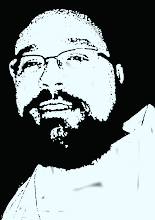The Catechetical Handbook of the Eastern Orthodox Church by D.H. Stamatis, Ph.D. (2003) describes a heretic as "a person who claims to be a Christian but does not believe in the Catholic faith. Instead, he holds to the teachings of men who mistakenly believe that every man has the right to explain the Holy Scriptures and its doctrines as seems best to himself."
Furthermore, it is stated that the fifth Commandment of the Orthodox Church "requires of us that we do not read the books of heretics, nor heed the blasphemous teachings of those who are untrained in Holy Scripture and in the Sacred Disciplines, nor take part in their discussions."
Part of my job as a priestly bridge between Orthodoxy and Gnosticism is to reconcile perceived differences, conflicts, and understandings of both theologies. I do honestly believe that the fundamental incompatibility of these two spiritual approaches are inherently derived from cultural bias and intentional ignorance. The above quote rather blatantly confirms the latter suspicion, but as I read and re-read these words, I felt compelled to deeply reflect upon how these words affect my Orthodoxy.
As a Gnostic and a Sethian, I could very well not care. Gnostics have an absolute right, as determined by the authority of their own tradition, to simply ignore any and all attempts at theological conformity. But as a minister of God who equally identifies himself as an "autocephalous Russian Orthodox priest," a simple dismissal of the core material would be both irresponsible and inconsiderate. In order to maintain the integrity of my ministerial description, that being both Sethian and Orthodox, I must make every effort to establish a firm position on all points that fall within expected contradiction between the two disciplines. But I have to say, this one was complicated and it led me to really wonder what is meant by the Universal/Catholic Church that I have been ordained into.
Let's first go back and reflect on the Orthodox definition of a heretic.
A heretic is defined to be, "a person who claims to be a Christian but does not believe in the Catholic faith". Incidentally, the Orthodox attach this term to all Protestants and all Roman Catholics, not just those of a Gnostic persuasion who consecrated their vocations outside of the "acceptable" episcopacy. Just by this acknowledgment, it becomes remarkably evident that "true" Catholicism is arbitrary and theoretical. Now, I must admit that Orthodoxy does have one powerful claim to hold the right to define it. It is their contention that the Universal/Catholic Church and all subsequent matters of faith and belief cannot be established by the act of one man's infallibility (in the case of the Papacy) or determined in the mind of private revelation (in the case of Gnosticism), but rather agreed upon by the counsels of the synod of Bishops. I do yield my objections this far in respect to this process. One of my primary criticisms of Protestantism is the personal interpretation of Holy Scripture. I've always felt that good theology is a group effort, maintained by the highest scholarly minds. But again, there is something also to be said for pure mystical experience, which is often something very much lacking in the left-brained world of higher theological education and conventional Church hierarchies.
Ultimately, I personally find the unfortunate flaw in Orthodoxy's approach to be written into the very "fifth Commandment of the Church". This idea that all Orthodox believers are "required" to not read heretical books or participate in similar discussions with such "problematic" people. Such a "law" can only lead one down a path of true ignorance, which is, not so ironically, the very antithesis of Gnostic ideology. A true Gnostic's purpose isn't to overthrow Orthodox teachings, lead the faithful astray, teach falsehood, lies, or to conduct one's affairs through premeditated treachery. No! Rather its only objective is to enlighten, to discern, to share, to experience, to realize, to know. And to do so never by means of coercion.
Which do you find to be the more enlightened approach?
Idealistically, my reconciliation between these two points of obvious contention rests within the simple fact that no man has any right of authority over any other man. Clergy are guides. Perhaps they have administrative authority by virtue of their positions, but this does not give them any right to perpetuate intentional ignorance and enforce it against their self-proclaimed subordinates. To assume such power as a clergyman is akin to what Orthodoxy would describe as Satanic manipulation.
I will always be troubled by this Orthodox definition of heresy and Catholicism. But I will remain forever hopeful that the Church's dynamic spirit will eventually move to such an enlightened state, that it will no longer be able to harbor such antiquated notions of censorship. Could it be that these Church leaders know, within their obvious wisdom and education, that there is truly more and they are afraid of it? I believe this is precisely the case and it is for this reason [sadly] that my autocephaly will remain my continued safeguard and protection against such pervasive dangers of conventionalism.
And yes, to you Dr. Stamatis, I am indeed a Christian and I most certainly believe in the Catholic faith and I do so with full intent because my own wisdom, experience, and intellect have confirmed that there is indeed more than what Orthodoxy is teaching us about God and I refuse to fear it. You may condemn me, my congregation, and my entire ministry, but such condemnation is based entirely upon the disease of intentional ignorance and that, my dear Dr. Stamatis, is a disease you can keep to yourself.
Fr. Bryan









